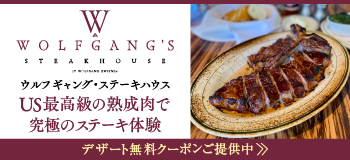May 11, Thanks, Mom
I had an interesting conversation with a Japanese colleague tonight. She asked me why Americans say, “Thanks, Mom,” so often. Of all the “weird” things Americans are classified to be, I never imagined that this would be one of them. Still, it wasn’t easy to explain why it’s not unusual.
Although the Japanese appreciate their mothers, they rarely verbalize their emotions. Those who do are usually shunned, or looked upon as strange. It’s a turn-off to see men thanking, loving, and emblazoning “MOM” on their arms. Saying “Thanks, Mom” is reserved for weddings, where it symbolizes a final “goodbye.” Couples present flowers to their mothers in a gesture of removing themselves from them, and starting their own families.
I tried to explain why saying thanks isn’t a strange concept to me. The first reason that popped into my mind was that many Americans live miles away from their mothers. Thanking them is a way to keep in touch across the miles. But the same is true in Japan. Moreover, in Japan, a man who honors his mom is thought to be disrespectful to his wife.
Okay, so my second attempt was that a man’s wife didn’t raise him. So when a man thanks his mother, it’s because he’s thanking her for raising him. He has come to a point where he is accomplished enough, be it a graduation, promotion, or even winning at the Academy Awards, that upon looking back, he realizes that his mother is the one who helped him to become who he is. Again, my American reasoning didn’t parallel hers.
So we agreed that it’s just “one of those things.” I admitted that my yearbook quote probably includes a “Thanks Mom & Dad.” She confessed that she couldn’t stand to even see someone mouth the words on television.
As I reflect on our conversation now, I think the underlying reason is the differences in culture. Americans are generally more emotional and outspoken with their feelings. The Japanese value inner strength and are known to display a tough resolve. Neither is right or wrong. But I definitely learned something interesting tonight.
Sunday is Mother’s Day. Almost ironically, the Japanese celebrate it, too. Although I won’t be with my mom, I will definitely call her, and my grandma. And maybe this year, I’ll be sure to say, “Thanks, Mom”-Just because it means more to me than ever before.
|
Susan Sensei’s English Lesson #29(スーザン先生の英語講座 その29) For two years I taught English in Japan, and was “スーザン先生” to my students in Ikaho town, Gunma Prefecture. I will try and introduce new words and phrases for the Japanese visitor to Hawaii. Here is this week’s situation: 【今週のレッスン】 ◆「バラの花を1ダース(12本)ください。」 英語で言ってみましょう! ◆ “I’d like a dozen roses, please .” 1ダースは「a dozen」2ダース以上は「two (or more) dozens」です。 |
| Loco Girl’s Profile(ロコ・ガールのプロフィール)
Born in Hilo, I grew up going fishing with Dad, shopping with Mom, and trying to be a good “big sister” to a younger sister and brother. A Waiakea High School and the University of Hawaii at Manoa alumni, I taught English in Japan for two years on the JET Program, and am now employed at PacRim Marketing Group, Inc. I love doing a lot of things-shopping, reading, lettering, making jewelry & crafts, watching Friends-and that’s just the start of my list! I like being busy, and am active with the JET Alumni Association (JETAA) and the Honolulu Junior Japanese Chamber of Commerce (HJJCC.) My family and friends are, of course, very important to me, and are why I live a very typical, happy, local-style life in Hawaii and will never leave! |






コメントを残す